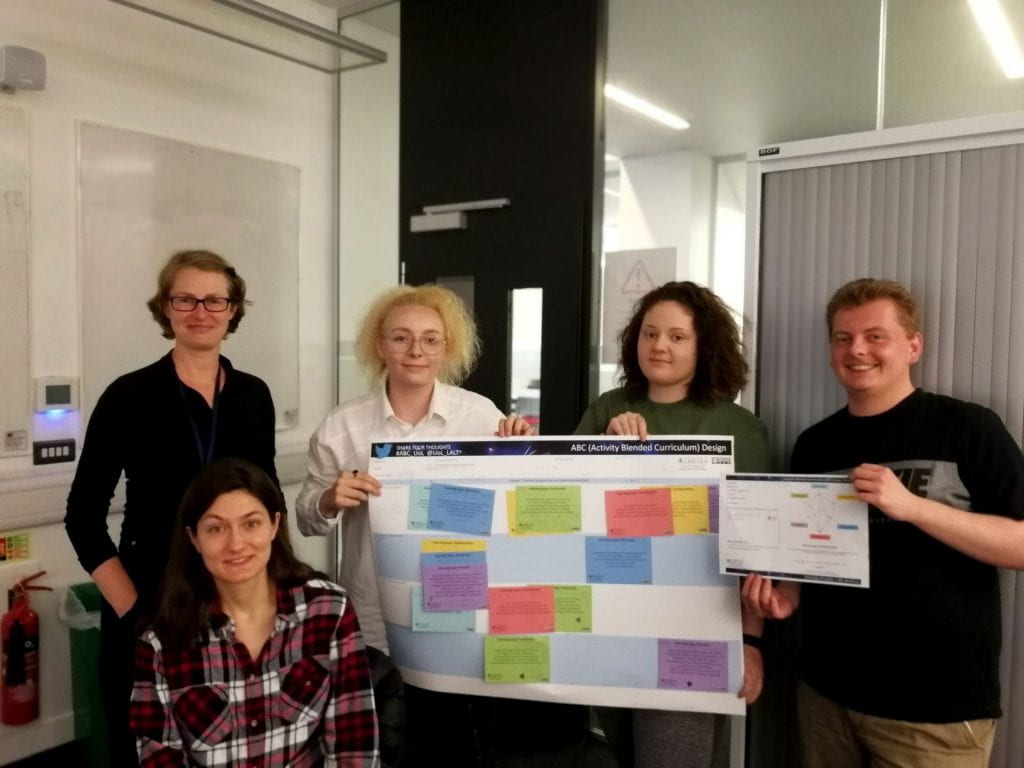Dr Alexandra Bohm – Senior Lecturer/ Digital Lead – Law – College of Social Science – Staff Profile
The problem of encouraging independent learning
In the level one module that I co-ordinate, tort law, we noticed that students seemed to struggle with developing the skill of self-assessment and understanding their strengths and weaknesses during the early part of their first year. This meant that some students were not seeking out the support they needed, because they did not realise what help they needed to ask for.
On all level one modules in the law school, we run week 6 of term one as a “digital week”, where all education is delivered online. This has been a mixture of online lectures, students uploading seminar material to blackboard, and running multiple choice quizzes for revision. I wanted to use digital week on my module to help students develop their skill of self-assessment, and provide digital tools to support this, so that they could make the most of the rest of their first year.
The Project: asking students what they need!

Together with Dan Wakefield and Chavan Kissoon of the digital education and support team, we invited level one and two students to a two-stage workshop. First, I met with the students to ask them to reflect on their experiences at the start of the first year, both in general and in relation to my tort module. We looked at the skills they felt they lacked during their first six weeks at university, and what support they thought would help them during this time.
We then ran the “ABC” (Activity Blended Curriculum) workshop with the same students, going into detail on the content of the first six weeks of the tort law module and deciding which skills and learning activities should be the focus of each week. This culminated in developing ideas for week six, digital week, that were student-focused on giving them the skills they need for level one and a manageable workload for the tutors who would be teaching on the module.
The students felt that they wanted more feedback early on in the course to see if they were “on the right track” with their preparation and understanding of the first few topics. They wanted to submit several short pieces of written work and have tutor feedback on these. This level of tutor-scrutiny would have been a problem for the tutors in terms of workload and finding the time to provide feedback on so many individual pieces of work. It also would not develop the students’ ability to assess their own progress. So we decided to work on peer evaluation, in small groups. Students would submit short pieces of written work for 3-4 weeks leading up to digital week, and in their small groups they would compare and evaluate each others’ work. During digital week, students would evaluate their own progress and write up a “personal learning plan” to focus on the skills they need to improve. Tutors would monitor the work through student submissions to Microsoft One Note, but the main source of learning would be through peer evaluation. This personal learning plan could then be revisited later in the year as students gain more subject knowledge, to see if they are improving the skills they identified as needing work.
A Shiny New Module
The student comments were invaluable and will be incorporated into the redesign of the tort law module. The first six weeks of the module now show a clear progression in skills development for the students, and ways for them to evaluate their own progress. Because the module has around 250 students, the development of digital tools are a great way to manage the potential increased tutor workload from the module changes. Tutors will now be better able to check how each student is progressing, and ensure that students can identify when they need further help.
ABC workshop
The ABC workshop is a 90 minute workshop that can be used to review or create new modules and can also support a programme review. The student used this to help reflect and improve on their learning.
To find out more about the abc workshop. Please visit our ABC page or email dwakefield@lincoln.ac.uk